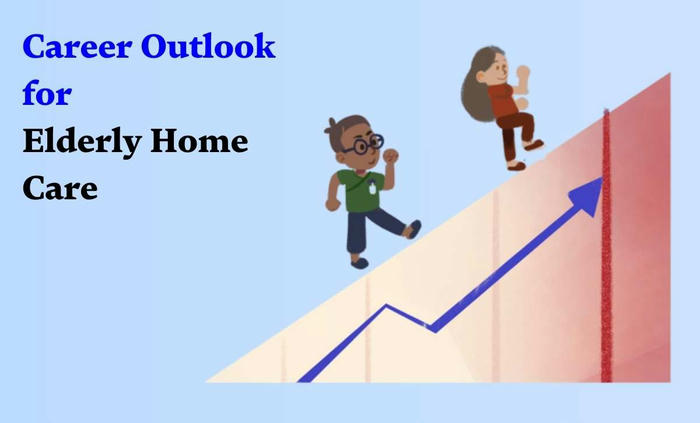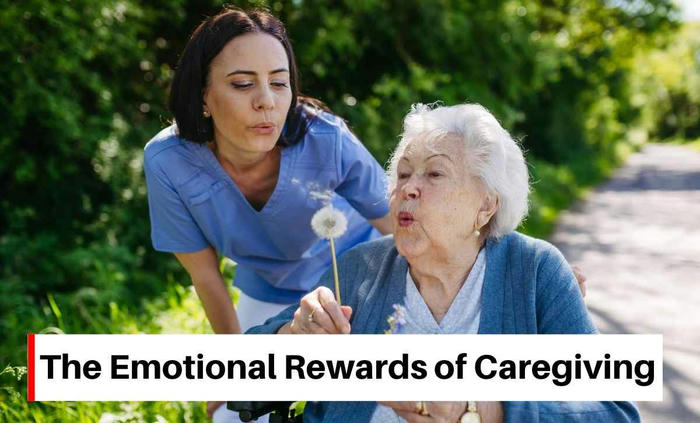Why Elderly Home Care is the Career You’ve Been Looking For
Are you searching for a career that offers meaningful work, personal fulfillment, and the chance to make a real difference in people’s lives? Elderly home care might just be the perfect fit for you. This profession is not just a job—it’s a calling that allows you to build deep connections, grow personally and professionally, and contribute to the well-being of society’s most vulnerable population. Here’s why elderly home care is the career you’ve been looking for.
The Growing Demand for Elderly Home Care Professionals
As the population ages, the need for elderly home care professionals is skyrocketing. In the United States, the number of people aged 65 and older is expected to double by 2060, according to the U.S. Census Bureau. This demographic shift creates a significant demand for compassionate, skilled caregivers who can provide personalized care to seniors in the comfort of their own homes.
Job Security and Growth Opportunities
With this growing demand comes unparalleled job security. The U.S. Bureau of Labor Statistics projects that employment for home health aides and personal care aides will grow by 25% from 2022 to 2032, much faster than the average for all occupations. This means that choosing a career in elderly home care opens the door to long-term stability and numerous opportunities for advancement.

The Rewards of Making a Difference
Building Meaningful Relationships
One of the most rewarding aspects of elderly home care is the opportunity to build deep, meaningful relationships with your clients. Unlike other professions where interactions can be impersonal, home care allows you to connect with seniors on a personal level, becoming a trusted companion and confidant.
Enhancing Quality of Life
As a caregiver, you play a vital role in enhancing the quality of life for your clients. Whether it’s helping them with daily tasks, providing emotional support, or simply sharing a conversation, your work ensures that seniors can live with dignity and independence.
A Sense of Purpose
Elderly home care is more than just a job—it’s a way to make a tangible impact on someone’s life. Knowing that your efforts directly contribute to the well-being and happiness of your clients can provide a profound sense of purpose and fulfillment.
Personal and Professional Growth
Developing Valuable Skills
Working in elderly home care equips you with a wide range of transferable skills, from communication and problem-solving to time management and empathy. These skills are not only valuable in the caregiving field but also in other professions and aspects of life.
Opportunities for Specialization
As you gain experience, you can choose to specialize in areas like dementia care, palliative care, or rehabilitation. Specialization can lead to higher earning potential and greater job satisfaction.
Continuous Learning
The field of elderly home care is constantly evolving, offering opportunities for continuous learning and professional development. From attending workshops to earning certifications, there’s always something new to learn.

Flexibility and Work-Life Balance
Flexible Scheduling
One of the advantages of elderly home care is the flexibility it offers. Many caregivers have the option to choose their hours, making it easier to balance work with personal commitments.
Part-Time and Full-Time Options
Whether you’re looking for a full-time career or a part-time job, elderly home care provides options to suit your lifestyle and needs.
Work Close to Home
Since caregiving often takes place in clients’ homes, you can often find work opportunities close to where you live, reducing commute times and stress.
The Emotional Rewards of Caregiving
Gratitude and Appreciation
Seniors and their families often express deep gratitude for the care and support provided by caregivers. This appreciation can be incredibly rewarding and motivating.
A Sense of Accomplishment
Helping someone overcome challenges or achieve small victories, like regaining mobility or improving their mood, can give you a strong sense of accomplishment.
Building a Legacy
By providing compassionate care, you’re not just helping individuals—you’re contributing to a culture of kindness and respect for the elderly. Your work leaves a lasting legacy.

How to Get Started in Elderly Home Care
Education and Training
While formal education isn’t always required, completing a training program or earning a certification can enhance your skills and make you a more competitive candidate. Many organizations offer training in areas like CPR, first aid, and specialized care techniques.
Finding the Right Employer
Look for reputable home care agencies or organizations that align with your values and provide support for their caregivers. A good employer will offer ongoing training, fair pay, and a positive work environment.
Building Your Network
Joining professional organizations or online communities can help you connect with other caregivers, share experiences, and learn about job opportunities.
Conclusion
Elderly home care is more than just a career—it’s a chance to make a meaningful difference in the lives of seniors while growing personally and professionally. With job security, flexibility, and the emotional rewards of caregiving, this profession offers a unique blend of fulfillment and opportunity. If you’re looking for a career that aligns with your values and allows you to leave a lasting impact, elderly home care might just be the perfect choice for you.
